A Quitting Smoking Emergency
By Dr. Mehmet Oz
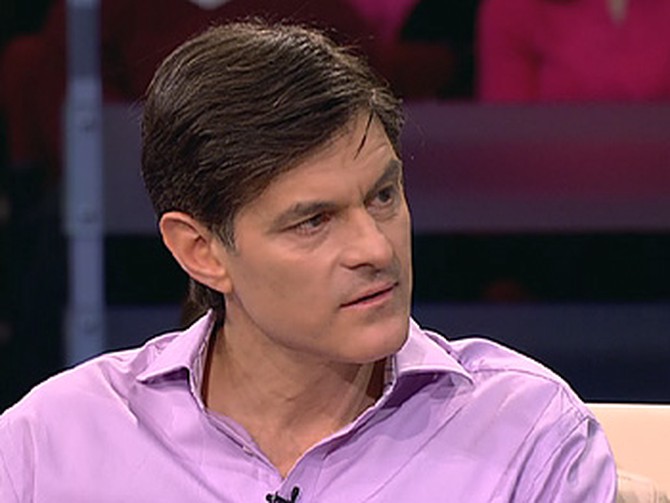
In February 2008, Dr. Oz conducted a follow-up with Gail, Leon and Wendie—three longtime smokers who had just weeks before made a commitment to quit.
During the show, 35-year-old mother Wendie explained that she was having trouble because her husband of eight years, Tony, was continuing to smoke. Dr. Oz told her this would put her goal of staying smoke-free in jeopardy. "I've got a prediction to make. If he doesn't stop smoking, you will probably fail," Dr. Oz says. "If he smokes, you will smoke again."
After meeting Wendie, Dr. Oz says he had a nagging feeling that he wasn't getting the full story, so he flew to visit her at her home in California.
During the show, 35-year-old mother Wendie explained that she was having trouble because her husband of eight years, Tony, was continuing to smoke. Dr. Oz told her this would put her goal of staying smoke-free in jeopardy. "I've got a prediction to make. If he doesn't stop smoking, you will probably fail," Dr. Oz says. "If he smokes, you will smoke again."
After meeting Wendie, Dr. Oz says he had a nagging feeling that he wasn't getting the full story, so he flew to visit her at her home in California.
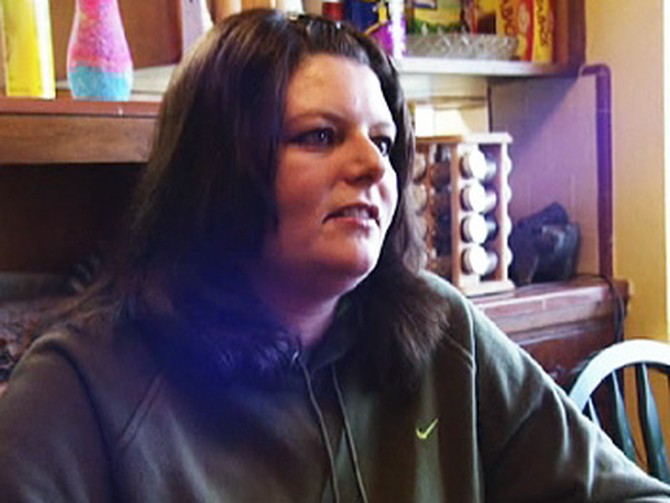
When Dr. Oz arrives, Wendie admits she was disappointed to hear that Tony's smoking made the odds of her relapse so high. "My hope was depleted," she says. "It crushed me. I've been working so hard."
Wendie and Tony met in Alcoholics Anonymous 16 years ago. Wendie says she was at a low point in her life and that Tony had already been sober for a year."He kind of rescued me from the situation I was in," she says. "I'd just lost my mom. I was living in my dad's home at that time … so I needed to get out of there."
Wendie and Tony met in Alcoholics Anonymous 16 years ago. Wendie says she was at a low point in her life and that Tony had already been sober for a year."He kind of rescued me from the situation I was in," she says. "I'd just lost my mom. I was living in my dad's home at that time … so I needed to get out of there."
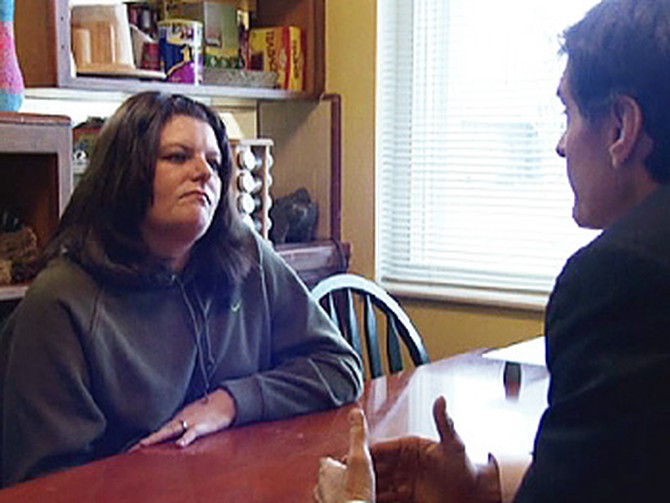
Dr. Oz describes Wendie and Tony's home as a "powder keg." Because she quit smoking and Tony didn't, their relationship is full of tension, which could explode at any time. Wendie says they have been fighting recently, even in front of their 6-year-old daughter, Bailie.
Wendie says one reason for the escalating tension is that she routinely has to watch as Tony and his mother, who recently moved in with them, slip outside to smoke. "They're both smoking, and I'm sitting here trying to not," she says.
Wendie worries this family tension may cause her to reach a breaking point. "My biggest fear is that I'm probably going to have to walk away, and I don't want to do that," she says. "I don't think that's the answer."
Wendie says one reason for the escalating tension is that she routinely has to watch as Tony and his mother, who recently moved in with them, slip outside to smoke. "They're both smoking, and I'm sitting here trying to not," she says.
Wendie worries this family tension may cause her to reach a breaking point. "My biggest fear is that I'm probably going to have to walk away, and I don't want to do that," she says. "I don't think that's the answer."
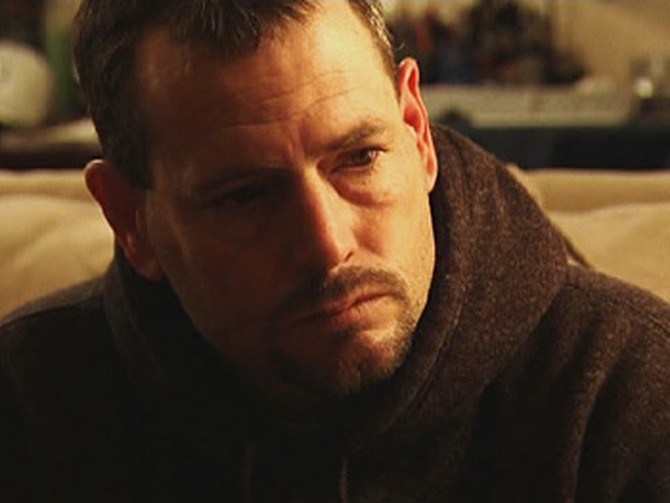
After speaking with Wendie, Dr. Oz meets with Tony and discovers he also wrestles with a root cause of his smoking addiction.
Tony's father died when he was a month old. Tony says he later abused alcohol before getting sober. "I just wanted to be better than what I was. I knew I could be," he says. "I wanted to be successful. I wanted to have a family, a house and a good job."
Tony says combining his and Wendie's personal issues with the pressures each of them feel about her quitting smoking has created a stressful environment that grows perpetually more stressful. "I call it 'the snowball rolling downhill,'" Tony says. "Just picking up more [stuff] to throw at me. It's rough with two people on the edge at the same time in the same house."
Dr. Oz says Tony and Wendie—and their daughter, Bailie—are not alone. "This is exactly what happens in a lot of houses in America. You've got people who love themselves. But love doesn't stop addictions by itself," he says. "I know that the arguments you're having are bothering Bailie. They're definitely bothering Wendie. And they're probably irritating you."
Tony's father died when he was a month old. Tony says he later abused alcohol before getting sober. "I just wanted to be better than what I was. I knew I could be," he says. "I wanted to be successful. I wanted to have a family, a house and a good job."
Tony says combining his and Wendie's personal issues with the pressures each of them feel about her quitting smoking has created a stressful environment that grows perpetually more stressful. "I call it 'the snowball rolling downhill,'" Tony says. "Just picking up more [stuff] to throw at me. It's rough with two people on the edge at the same time in the same house."
Dr. Oz says Tony and Wendie—and their daughter, Bailie—are not alone. "This is exactly what happens in a lot of houses in America. You've got people who love themselves. But love doesn't stop addictions by itself," he says. "I know that the arguments you're having are bothering Bailie. They're definitely bothering Wendie. And they're probably irritating you."
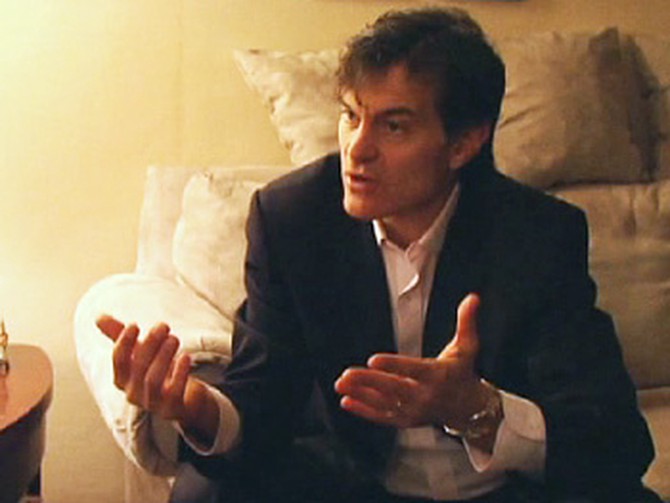
Tony struggles with identifying a support system—friends who he can talk to when crisis hits. He tells Dr. Oz that he's really isolated. "I really don't have any friends outside of my wife," he says. "I work with people, and I come home and spend time with my wife and kids."
When Tony quit drinking years ago, he says he lost contact with most of his old friends and now devotes himself to Wendie and Bailie. But that leaves him emotionally exposed. "My biggest fear is losing my wife and my daughter," he says.
When Tony quit drinking years ago, he says he lost contact with most of his old friends and now devotes himself to Wendie and Bailie. But that leaves him emotionally exposed. "My biggest fear is losing my wife and my daughter," he says.
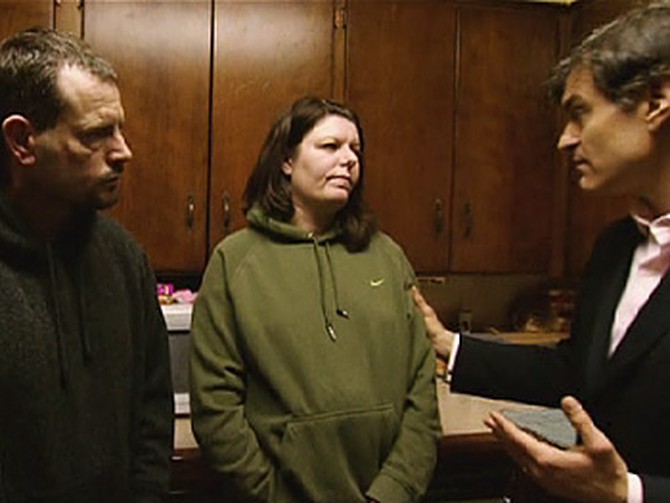
Dr. Oz says the lure of smoking in Tony and Wendie's home is powerful. But the real issue, he says, is fear.
Tony's biggest fear is of abandonment, while Wendie fears she will feel compelled to run away from her family. "It's the perfect storm," Dr. Oz says.
Instead of running to their pack of cigarettes whenever things get difficult, Dr. Oz says Tony and Wendie need to get used to confronting their emotions without smoking. "Let's say there's a deadline next week, [and] you have a lot of fear on that deadline," he says. "You panic. You have a cigarette, have a drink…whatever drives you to do things you know are not good for you. And the bad thing doesn't happen. So you think you're right, but you never let what would be uncomfortable happen."
Tony's biggest fear is of abandonment, while Wendie fears she will feel compelled to run away from her family. "It's the perfect storm," Dr. Oz says.
Instead of running to their pack of cigarettes whenever things get difficult, Dr. Oz says Tony and Wendie need to get used to confronting their emotions without smoking. "Let's say there's a deadline next week, [and] you have a lot of fear on that deadline," he says. "You panic. You have a cigarette, have a drink…whatever drives you to do things you know are not good for you. And the bad thing doesn't happen. So you think you're right, but you never let what would be uncomfortable happen."
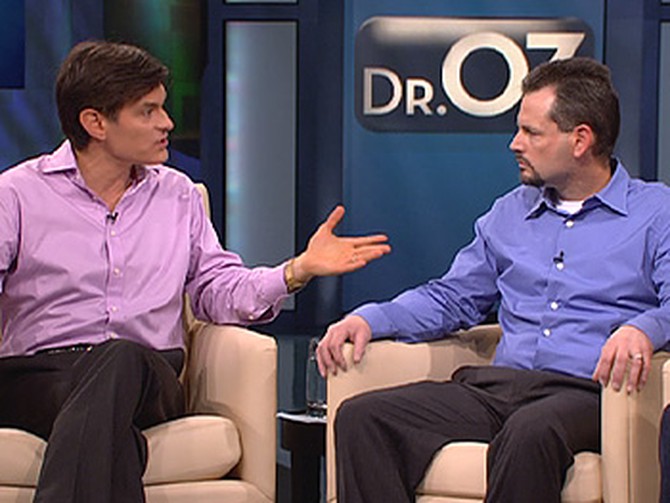
Since Dr. Oz's house call, Tony has made big strides. Eight days ago, he smoked his last cigarette. After initially trying to just cut down, he says he realized he needed a clean break. "I just said, 'You're either going to beat this, or it's going to beat you,'" he says. "It was tough getting through that first day. Then my second day, I went back to work. Work was hard—lots of people smoke there—but it was easier than at home because I wasn't around [Wendie]."
Tony also asked his mother to leave, explaining that her presence was adding to the stress in their home. "My wife and kids are the most important thing to me, so I'm going to do whatever it takes to keep my family together," he says.
Despite these positive moves, Dr. Oz says Tony is still in a very dangerous position, particularly because of his lack of friends.
Tony also asked his mother to leave, explaining that her presence was adding to the stress in their home. "My wife and kids are the most important thing to me, so I'm going to do whatever it takes to keep my family together," he says.
Despite these positive moves, Dr. Oz says Tony is still in a very dangerous position, particularly because of his lack of friends.
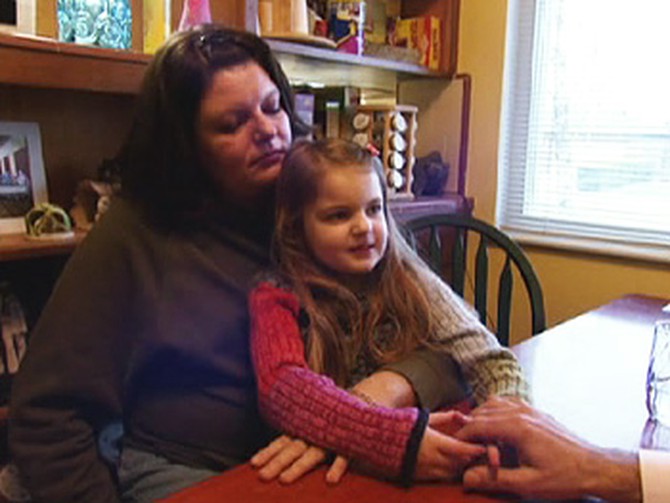
Wendie and Tony's battle with smoking is affecting more than just their relationship. Their 6-year-old daughter, Bailie, can feel the tension in the home. "One day, when my mommy and daddy argued, I went in my bunk bed, and I hid under the blankets," she says. "Sometimes, my mom says she's going to run away, and that makes me sad."
Tony says it pains him to see Bailie's reaction and he's trying to keep her from overhearing arguments. "We don't have discussions about things that we can get heated about anymore until after she goes to bed," he says. "We just don't talk about those things right now."
But the high level of tension in the home, Tony says, is what can cause a fight to be triggered at any moment. Dr. Oz emphasizes the importance of keeping Bailie out of the arguments. "The thing is, Bailie becomes the judge and the jury," Dr. Oz says. "And she shouldn't be in the courtroom."
Tony says it pains him to see Bailie's reaction and he's trying to keep her from overhearing arguments. "We don't have discussions about things that we can get heated about anymore until after she goes to bed," he says. "We just don't talk about those things right now."
But the high level of tension in the home, Tony says, is what can cause a fight to be triggered at any moment. Dr. Oz emphasizes the importance of keeping Bailie out of the arguments. "The thing is, Bailie becomes the judge and the jury," Dr. Oz says. "And she shouldn't be in the courtroom."
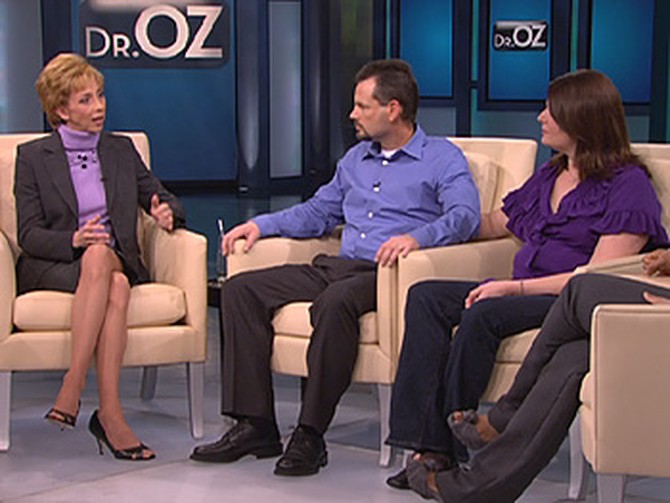
Dr. Oz calls on friend and colleague Martha Beck to help solve the underlying problems that cause Wendie and Tony to turn to cigarettes. Martha says their addictions are the result of fight-or-flight reflexes that need to be turned off.
"The reason that explosive quality is in your house and you're always thinking about running is because trauma in childhood has put you in a permanent fight-or-flight state," she says. "Smoking calms you down. So if you take away the smoking, take away any other substance, you have no way of calming down. It's like you're a deer caught in a cage with a live tiger all the time."
"The reason that explosive quality is in your house and you're always thinking about running is because trauma in childhood has put you in a permanent fight-or-flight state," she says. "Smoking calms you down. So if you take away the smoking, take away any other substance, you have no way of calming down. It's like you're a deer caught in a cage with a live tiger all the time."
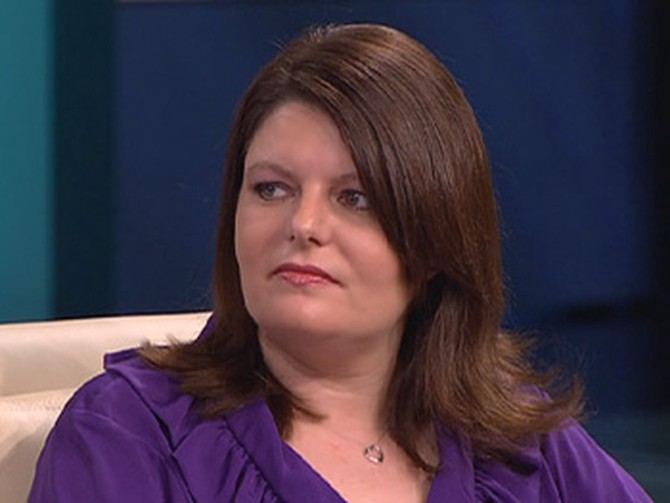
Martha says that although the fight-or-flight impulse has become ingrained in Wendie, she can retrain her brain to calm herself without the use of cigarettes. "It's really simple," Martha says. "It's about the way we tell ourselves the stories of our lives."
Martha says the stories that Wendie tells herself about walking away from her family are frightening and need to stop. "Your brain is in this rut where you're just telling yourself scary things over and over," she says.
To create more positive stories, Martha tells Wendie to think of three reasons why she doesn't need to walk away from her family. Wendie says her love for her family, her strength and her daughter benefiting from a family that stays together are her reasons. "As simple as it sounds, learning to tell slightly different stories about your own behavior is like turning an airplane," Martha says. "It's just a little bit at first, but over a year's time, you'll end up in a totally different place."
Martha says the stories that Wendie tells herself about walking away from her family are frightening and need to stop. "Your brain is in this rut where you're just telling yourself scary things over and over," she says.
To create more positive stories, Martha tells Wendie to think of three reasons why she doesn't need to walk away from her family. Wendie says her love for her family, her strength and her daughter benefiting from a family that stays together are her reasons. "As simple as it sounds, learning to tell slightly different stories about your own behavior is like turning an airplane," Martha says. "It's just a little bit at first, but over a year's time, you'll end up in a totally different place."
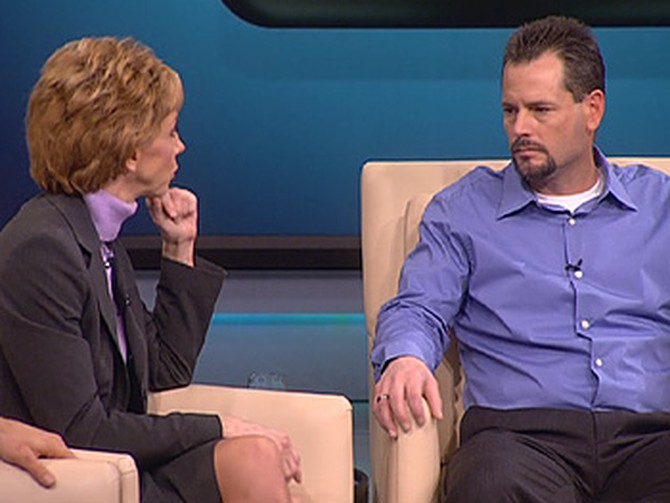
Martha asks Tony for three reasons why he will not fail and lose his loved ones. "That's a hard one," Tony says. Although it's difficult for him, Martha stresses that the fight-or-flight reflex can only be turned off with a story that's not frightening. "Tony, when you talk, you look down," Martha says. "That usually means you're cut off from the present, and you're back usually in childhood. The sadness is really palpable."
Tony watches the audience while Martha asks those who thinks he is a good person to raise their hands. As the entire audience raises their hands, Tony doesn't look down. "Look at us," Martha says. "We've seen hard-core the worst of Tony, and we all think you're a really good person. We just get that feeling from you."
Martha says Tony needs to stop beating up on himself. "Shame and fear are driving your addictions, and you can't scare yourself out of being scared," she says. "If you don't stop being scared, you're going to ruin everything. It just makes you more scared. You can't shame yourself out of being shamed."
Tony watches the audience while Martha asks those who thinks he is a good person to raise their hands. As the entire audience raises their hands, Tony doesn't look down. "Look at us," Martha says. "We've seen hard-core the worst of Tony, and we all think you're a really good person. We just get that feeling from you."
Martha says Tony needs to stop beating up on himself. "Shame and fear are driving your addictions, and you can't scare yourself out of being scared," she says. "If you don't stop being scared, you're going to ruin everything. It just makes you more scared. You can't shame yourself out of being shamed."
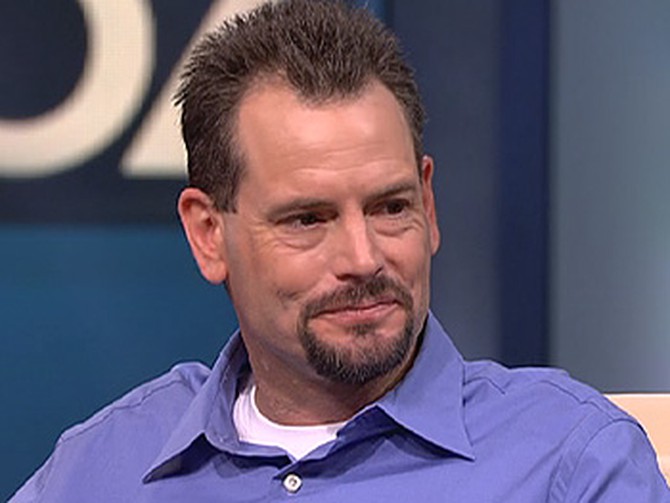
Tony is able to come up with three reasons why he will not fail and lose his loved ones—he works hard, is a good father and a good husband. Martha asks Tony to describe a time when he was a great father to Bailie.
As he describes a trip to Disneyland, Tony's demeanor noticeably changes. "We just had a blast," he says. "We had fun. She looked up at me and she said 'I love you, Daddy.' That stuff makes me feel good." For the first time, Martha says she can see the real Tony. "Before, that scared animal was too frightened to be Tony," she says.
Martha says it's important for Tony to not beat up on himself or else he'll teach Bailie to do the same. "[Children] don't treat themselves the way you treat them," she says. "They treat themselves the way you treat you."
As he describes a trip to Disneyland, Tony's demeanor noticeably changes. "We just had a blast," he says. "We had fun. She looked up at me and she said 'I love you, Daddy.' That stuff makes me feel good." For the first time, Martha says she can see the real Tony. "Before, that scared animal was too frightened to be Tony," she says.
Martha says it's important for Tony to not beat up on himself or else he'll teach Bailie to do the same. "[Children] don't treat themselves the way you treat them," she says. "They treat themselves the way you treat you."
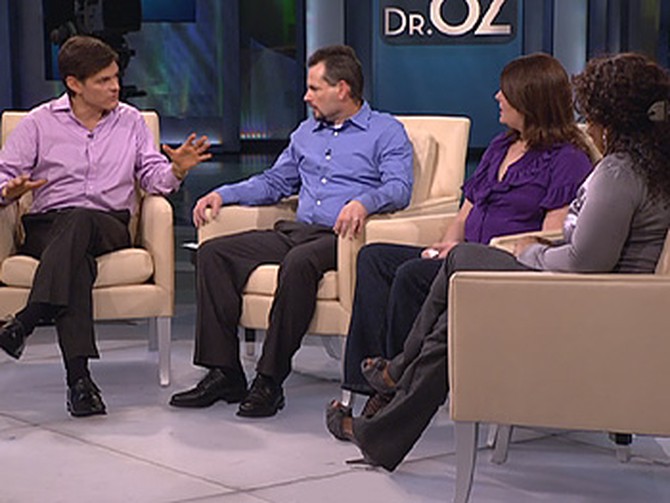
Dr. Oz offers a word of caution for couples who sometimes fight like Wendie and Tony. "You pay a heavy price when you try to control your spouse's behavior," he says. "So you've got to really make sure that what's coming out is all about betterment and not about control."
Wendie admits she can be controlling. "I'm a yeller," she says. "I'm a screamer. And he doesn't hear me. I finally figured out why he doesn't hear me—I automatically put him on the defensive."
Instead of shouting, Martha's advice is to communicate with positive words. "When you look at each other, when you're having a fight or whatever, one of you has to be the grown up and be able to look the other one in the eyes and just say these words … 'All is well.'"
Martha says this phrase will keep the fight-or-flight reflex from taking control. "If you keep doing that," she says, "it will become the replacement for your addictions."
Wendie admits she can be controlling. "I'm a yeller," she says. "I'm a screamer. And he doesn't hear me. I finally figured out why he doesn't hear me—I automatically put him on the defensive."
Instead of shouting, Martha's advice is to communicate with positive words. "When you look at each other, when you're having a fight or whatever, one of you has to be the grown up and be able to look the other one in the eyes and just say these words … 'All is well.'"
Martha says this phrase will keep the fight-or-flight reflex from taking control. "If you keep doing that," she says, "it will become the replacement for your addictions."
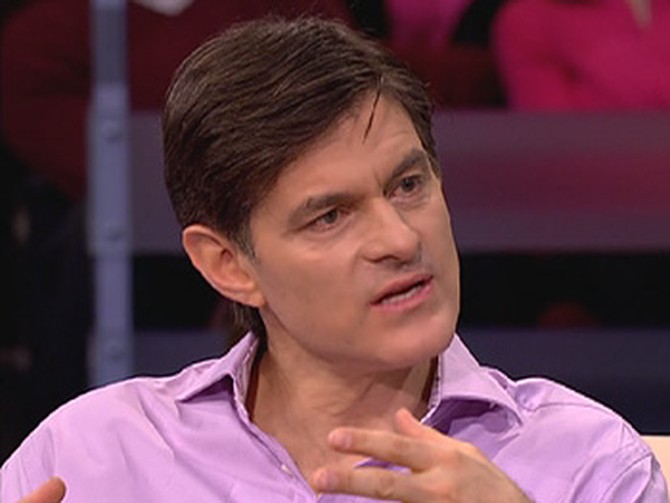
Tony is worried that smoking has already caused him permanent damage.
Fortunately, Dr. Oz says Tony's lung scans were normal, but his results show
that Tony has one of the worst cases of sinus disease the study doctor had ever
seen.
Although Tony was using cigarettes to help deal with his problems, Dr. Oz says everyone can relate to dealing with a problem in an unhealthy way. "It's not about cigarettes," he says. "It's about life. Cigarettes are just the best example to use to talk about it. How more obvious can you be that you're doing something that's bad for you?"
Although Tony was using cigarettes to help deal with his problems, Dr. Oz says everyone can relate to dealing with a problem in an unhealthy way. "It's not about cigarettes," he says. "It's about life. Cigarettes are just the best example to use to talk about it. How more obvious can you be that you're doing something that's bad for you?"
Published 01/01/2006

